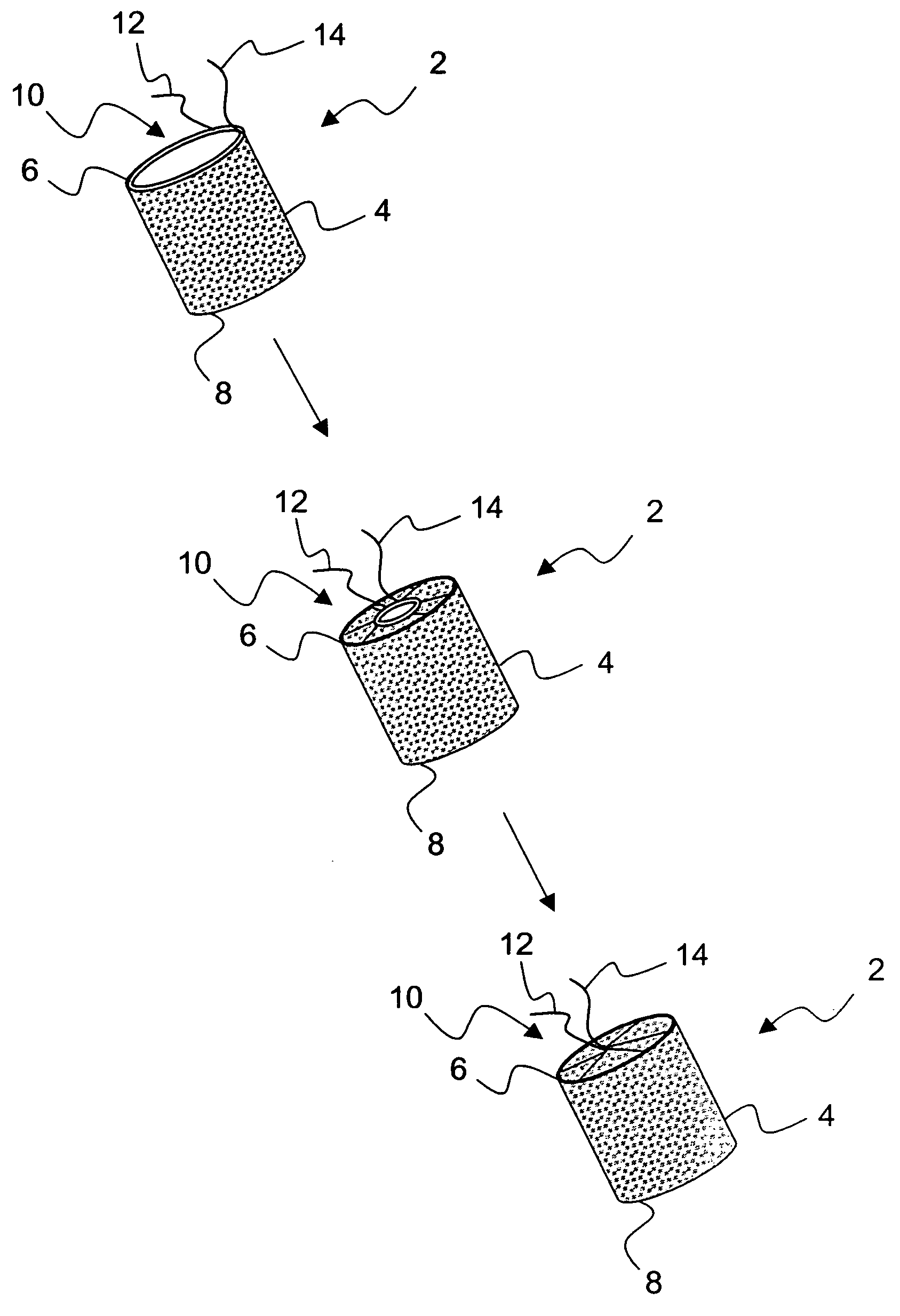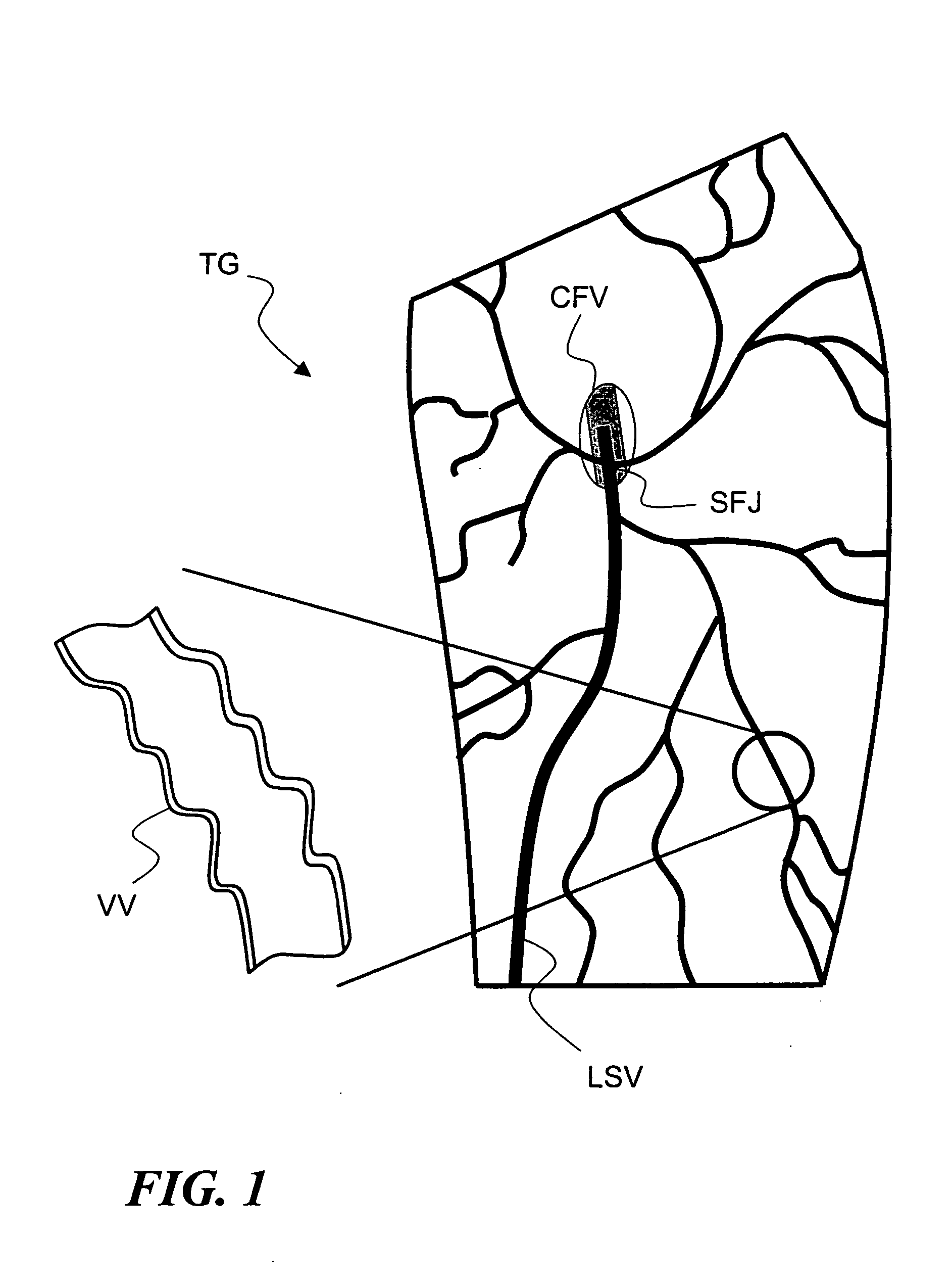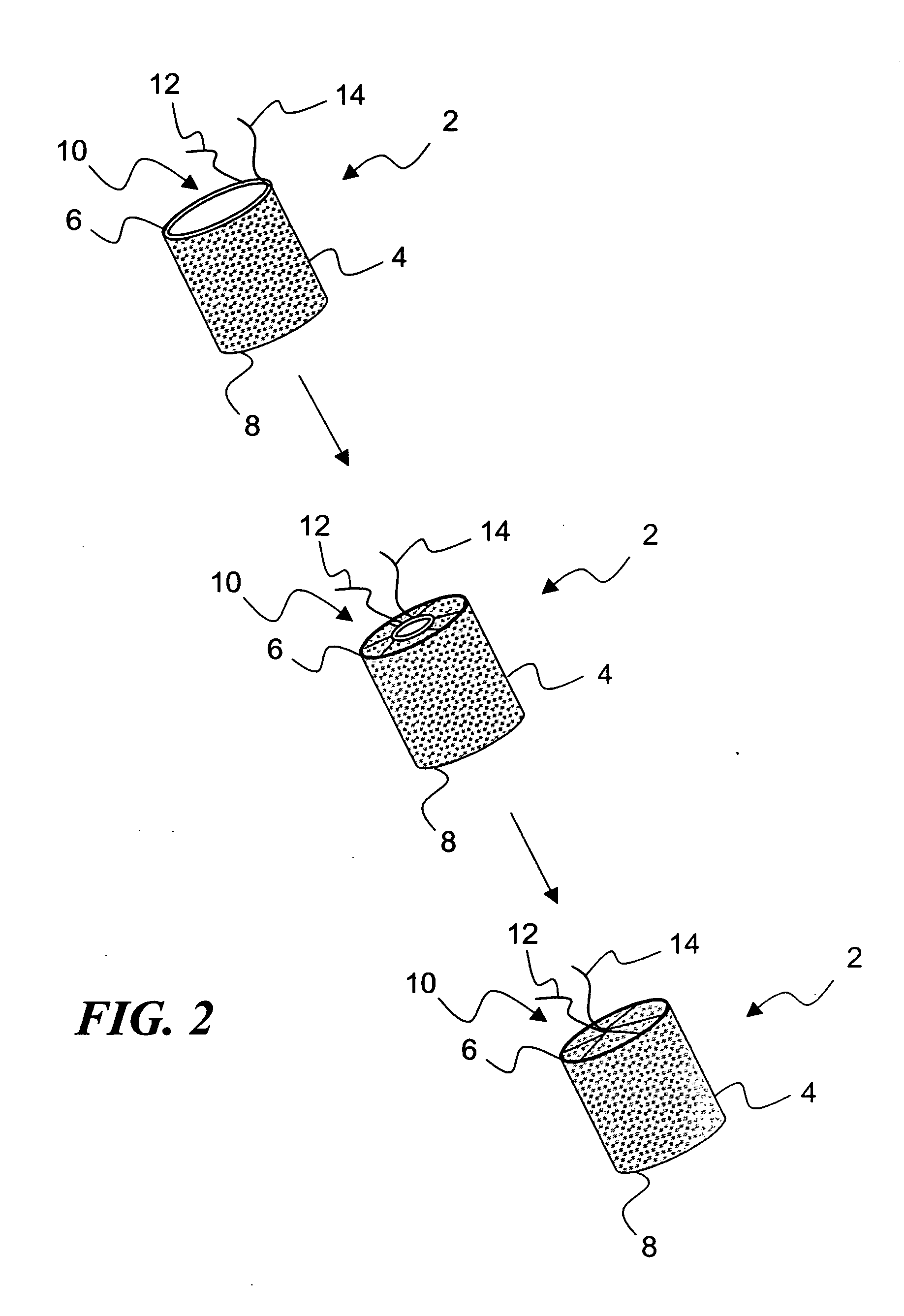Temporary absorbable venous occlusive stent and superficial vein treatment method
a technology of occlusive stent and superficial vein, which is applied in the field of superficial vein treatment methods, can solve the problems of prolonged recovery time, inconvenient operation, and need for hospitalization and surgery, and achieve the effects of reducing distension of varicose vein, fibrosis and vein collapse, and promoting localized blood clotting
- Summary
- Abstract
- Description
- Claims
- Application Information
AI Technical Summary
Benefits of technology
Problems solved by technology
Method used
Image
Examples
exemplary embodiment 2
[0037]FIG. 2 illustrates an exemplary embodiment 2 of a temporary absorbable venous occlusive stent that may be used in accordance with the invention. The stent 2 is configured as a generally tubular body 4 having a proximal end 6 and a distal end 8. The body 4 is made from a bio-absorbable material having the capability to absorb within a time frame that is long enough to allow the aforementioned permanent blockage to form in a vein to be implanted. By way of example only, a fabric woven from threads of dissolvable (e.g., polylactic acid) suture material could be used to form the body 4. Such material has an absorption schedule of about 28 days, which should be more than adequate for purposes of the present invention. Both ends of the stent 2 are initially open, but the proximal end 6 is provided with a suitable closure system that allows it to be closed following deployment.
[0038]FIG. 2 shows one exemplary closure system in the form of a drawstring arrangement. In particular, a dr...
exemplary embodiment 102
[0041]FIGS. 4A-4B and 5A-5B illustrate additional stent configuration alternatives. In FIG. 4A, a second exemplary embodiment 102 of a temporary absorbable venous occlusive stent is shown. As can be seen with additional reference to FIG. 4B, the stent 102 is configured as a generally tubular body 104 having a proximal end 106 and a distal end 108. The body 104 is similar to the body 4 of FIG. 2 except that the proximal end 106 of the body 104 has a closed end wall 110. The end wall 110 provides a closure system for the stent 102 that represents an alternative to the drawstring closure system used in the stent 2 of FIG. 2. Note that the end wall 110 can either be permanently formed as part of the body 104, or alternatively could be separately attached thereto, either prior to, during or after deployment of the stent 102 (e.g., as an insertable plug). Although the end wall 110 is located at the proximal end 106 of the stent 102, it could also be located at the distal end 108. A wall c...
exemplary embodiment 202
[0042] In FIG. 5A, a third exemplary embodiment 202 of a temporary absorbable venous occlusive stent is shown. As can be seen with additional reference to FIG. 5B, the stent 202 is configured as a generally solid cylindrical body 204 having a proximal end 206 and a distal end 208. The use of a solid body 204 provides a closure system for the stent 202 that represents an alternative to the drawstring closure system used in the stent 2 of FIG. 2. The body 204 can be made from any suitable bio-absorbable material, such as packed or bundled bio-absorbable filaments, folded bio-absorbable fabric, or a bio-absorbable foam. Although the body 204 is shown as being generally cylindrical, it will appreciated that other configurations could also be used, such as spheres, cones, pyramids, irregular shapes, etc., to implement a body portion of the stent 202.
[0043] Turning now to FIGS. 6A-6K, an exemplary stent implantation method utilizing pathways within a patient's deep vein system will now be...
PUM
| Property | Measurement | Unit |
|---|---|---|
| Flow rate | aaaaa | aaaaa |
| Bioabsorbable | aaaaa | aaaaa |
Abstract
Description
Claims
Application Information
 Login to View More
Login to View More - R&D
- Intellectual Property
- Life Sciences
- Materials
- Tech Scout
- Unparalleled Data Quality
- Higher Quality Content
- 60% Fewer Hallucinations
Browse by: Latest US Patents, China's latest patents, Technical Efficacy Thesaurus, Application Domain, Technology Topic, Popular Technical Reports.
© 2025 PatSnap. All rights reserved.Legal|Privacy policy|Modern Slavery Act Transparency Statement|Sitemap|About US| Contact US: help@patsnap.com



